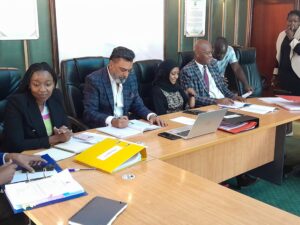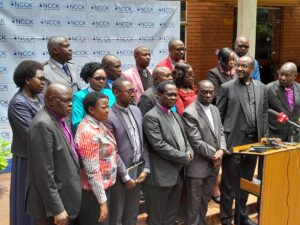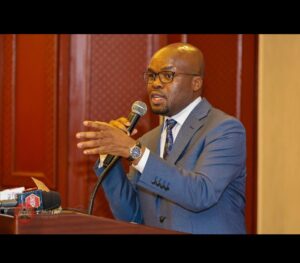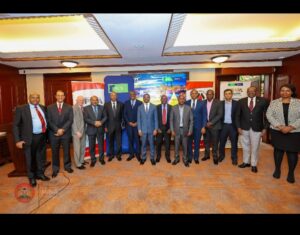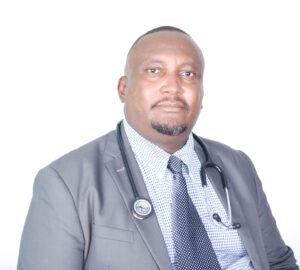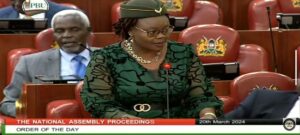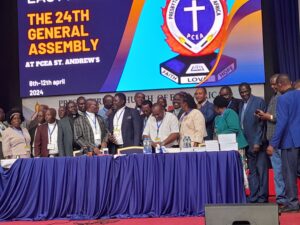
865 Commissioners of the 24th General Assembly of the Presbyterian Church of East Africa (PCEA), convened at St Andrew’s Church, Nairobi and discussed emerging isssues of the Nation.
Guided by the theme “… we will serve the Lord.” (Joshua 24:15), they discussed the following;
Education
The Church fully supports the implementation of the Competency-Based Curriculum. However, we note the gaps in infrastructure, staff and junior secondary school placement while the delay in the release of capitation is affecting the quality of education. We urge the government to swiftly resolve these issues.
We urge that the disjointed bursary funds be consolidated under the Ministry of Education and be administered fairly. Funding of university education should also be aligned to serve all Kenyan students whether in private or public institutions.
Additionally, we encourage that an ideal and advanced character formation and life skills programme be adopted for all Kenyan youths to equip them for successful lifestyles.
Health Care
The Church calls for speedy transition to the Social Health Insurance Fund (SHIF) and the prompt disbursement of funds to prevent further healthcare service disruptions.
The Church notes with great concern the ongoing health workers’ strike and its negative impact on the citizens. We strongly urge the parties involved to urgently resolve the standoff to ease the suffering of Kenyans.
The Church commits to partner with government and other stakeholders to address mental health issues affecting Kenyans. The Church will also partner with the government to promote access to mental health services and partner with experts and like-minded stakeholders to provide rehabilitation services.
The Church encourages all to observe healthy-living practices such as a balanced diet, regular exercise and frequent medical check-ups to avoid and manage lifestyle diseases.
Food Security
The Church appreciates the government’s efforts to eliminate hunger. However, we urge the government to promote innovative agricultural practices and reduce over-reliance on rain-fed agriculture. We encourage the government to ensure that the
seeds- preferably hybrid- are certified and fertiliser is not compromised for maximum yield. Farmers are advised to reach out to field extension officers for expert advice.
Cost of living
The Church notes with great concern the high cost of living remains high. In this regard, the Church implores the government to ease the hardship that the citizens are experiencing.
Insecurity and National Cohesion.
We are gravely concerned by the escalating insecurity in certain parts of this country which have been declared as ‘disturbed’. We also acknowledge the relentless effort by the government to quell this insecurity.
As a Church, we respond to the President’s call to action to use evangelism as a tool to curb the chaos. It is our longstanding tradition to collaborate with the government and we will play our role in pacifying the disturbed areas in pursuit of the Great Commission.
Road Accidents
In light of the alarming surge of road accidents nationwide, the Church urges the government to prioritise road maintenance and enforce strict measures to ensure the roadworthiness of all vehicles. We also call upon the Kenya Police to uphold high professional standards and integrity in dispensing their duties and urge road users to act responsibly.
Illicit Brew, Drugs and Substance abuse.
The Church acknowledges the government’s war on illicit brew, drugs and substance abuse. We however urge the government to intensify its efforts to combat substance abuse, including prevention, rehabilitation, law enforcement and public education campaigns.
In that regard, the Church will cooperate to amplify this fight and avail her resources including personnel to this end.
The Church is concerned with the court ruling concerning the legalisation of consumption of traditional brews like Muratina. We still maintain the view that alcohol is harmful and detrimental to human health and development.
Youth and unemployment
Recognising the youth as Kenya’s dominant demographic, we appreciate the government’s efforts to generate employment through initiatives like affordable housing, digital jobs, and labour exports.
Nevertheless, we challenge the government to not just maintain but ramp up efforts Nevertheless, we challenge the government to not just maintain but ramp up efforts in prioritising job creation, amplifying skills development, and fueling entrepreneurship. It’s time for action that matches the urgency of our youth’s aspirations.
Family Ethos
The Church is dismayed by the court ruling that allows the formation of an association of the LGBTQI+. We also strongly condemn gender-based violence and femicide whose cases have been on the rise.
To this end, the Church will endeavour to be a safe space for all those hurting both for their refuge and healing and also a nurturing ground for wholesome families.
In the spirit of the theme of the 24th General Assembly from Joshua 24: 15 “…we will serve the Lord.” The Church is calling upon everyone to collaborative action towards a better society. The truest testimony of our faith is how we serve one nation and one another.
The Church remains committed to pray and engage objectively all stakeholders to seek solutions to the challenges affecting humanity.
Finally, we mourn the passing on of the Very Rev. Dr. George E. Wanjau, the Moderator of the 11th and 12th General Assembly who served the Church and the nation with diligence and distinction. We send our condolences to the family, friends and the nation.


